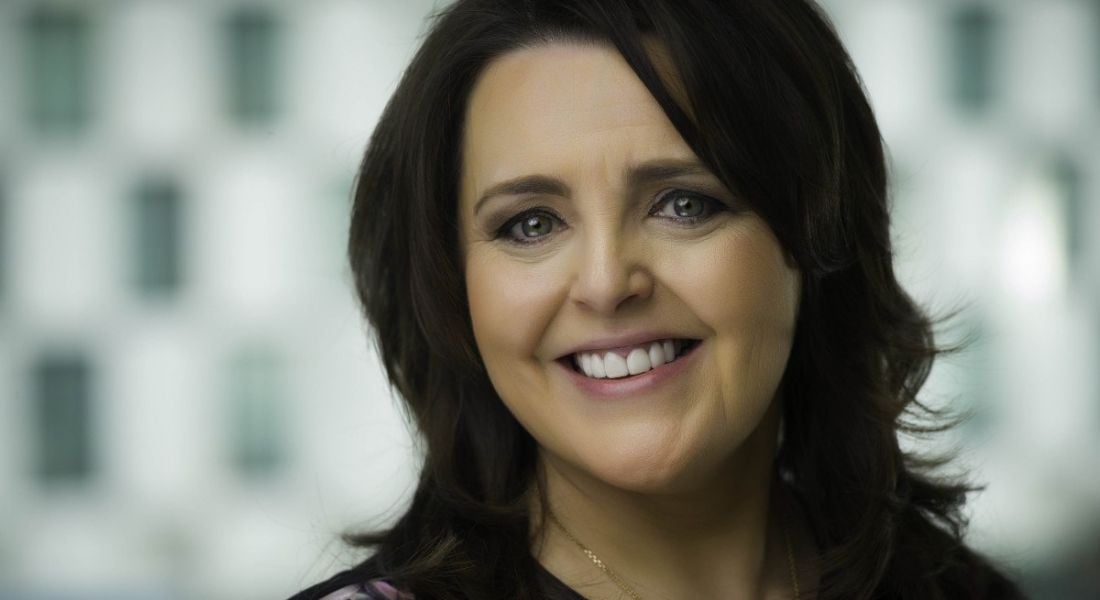Dr Michelle Cullen, head of inclusion and diversity at Accenture Ireland, writes that we should still focus on company culture when teams are apart.
We are at a poignant, historical point in time. For many organisations across the country, this will be their first foray into working from home, while for others it’s par for the course or they may have found their digital transformation somewhat accelerated.
This is where, I believe, leaders can make a difference to the lives of all their people and their families. Society has changed like never before. We are all in new territory and it is important to consider how we engage with each other during this time. Our culture of work will have to create a means of support and trust for our colleagues, enabling us to sustain productivity, engagement and belonging.
We can take some positive steps now towards building a stronger culture of equality and belonging that can generate a substantial positive impact for colleagues and serve as an opportunity to ensure that everyone is working from home as a cohesive unit.
Aligning your company culture to unlock potential
However, getting company culture right is not an easy feat and can present challenges, whether an organisation is operating remotely or in an office. This year, our annual International Women’s Day research found that while leaders say a culture of equality is important and think their organisations are inclusive, employees may feel very differently.
For the past three years, we have studied how organisations create a culture of equality and what the impact of this culture can be. The findings confirm that now, more than ever, we are at an inflection point. Employees care increasingly about workplace culture and more companies recognise the importance of equality. However, despite growing awareness, progress just isn’t happening fast enough.
When a strong, equal workplace culture is prioritised, everyone benefits and, as a result, organisations can unlock greater innovation and growth, whether their team is physically together in an office environment or working together virtually by connected, collaborative remote working.
‘Leaders play a vital role in taking the workplace to their workers and should set up every one of their colleagues for success’
A small percentage of leaders in our study, the ‘culture makers’, are more committed to building equal cultures. These leaders recognise the importance of factors such as pay transparency, family leave and the freedom to be creative in helping employees thrive. It’s no coincidence, given what we know about the power of culture to unlock potential, that these organisations have shown profits 3.2 times higher than others.
But what can organisations in Ireland actually do to create a culture of equality and belonging that can bring teams together, and especially while they’re apart? There are three key areas for leaders to keep in mind if they want to become true culture makers and reap the benefits for their organisations while working remotely.
What culture makers say
They communicate that building a more inclusive culture is an organisational priority. Culture makers hold themselves accountable, leading organisations that are nearly twice as likely to have publicly announced a target to hire and retain more women.
Leaders who are culture makers will also understand that remote working isn’t always equal for everyone and can, in some cases, enable a culture of inequality.
From trying to juggle child minding or caring responsibilities and struggling with poor broadband connection, to not having access to the machinery or physical space that would allow one to successfully work from home, leaders must ensure that no one is left behind during this period. Leaders play a vital role in taking the workplace to their workers and should set up every one of their colleagues for success.
What culture makers do
They recognise the importance of culture and identify change as a personal goal. Creating a culture of equality requires bold leadership, comprehensive action and an empowering environment.
With a remote team, culture makers will understand the significance of open communication channels and transparency among their team and how this can be utilised to ensure everyone feels empowered to contribute.
Leaders should engage in meaningful, continuous dialogue with employees. Consider one-on-one video calls, virtual group meetings or online town halls. Conducting ongoing, real-time conversations with employees who are working remotely helps to capture feedback and empower leadership to quickly drive change, even outside the office environment.
What culture makers drive
They reward their people for building a more inclusive culture. Leaders must create an empowering environment, hence encouraging and cultivating culture makers. Benchmark progress towards a culture of equality by rewarding and recognising leaders and teams on their development in the virtual community you are building.
Create opportunities for future culture makers to opt in and take on specific culture-related roles for certain areas of the business from home and find ways to bring leaders and culture-minded employees together online to develop specific, actionable solutions.
Levelling the playing field
Inclusion and diversity in the workplace are about making sure that everyone – regardless of age, gender, socio-economic status, ability and whether you are with kids or without – has the same opportunities and support, helping to level the playing field for all.
There will be many important lessons to be learned from the environment we are in now. A less obvious one, though nonetheless significant, is that an organisation lacking a culture of equality and belonging complicates its own efforts to create one cohesive unit when it matters most.
Bridging that cultural gap, and ensuring it stems beyond an office’s four walls, can make the difference between colleagues feeling excluded and feeling supported, trusted and allowed to perform at their very best.
Decisions we make in the next few weeks will shape our culture for years to come.
Dr Michelle Cullen is a managing director and head of inclusion and diversity at Accenture in Ireland.




